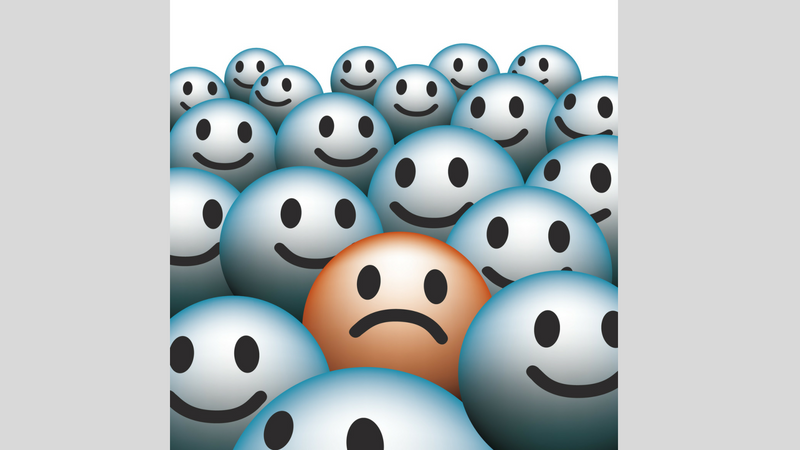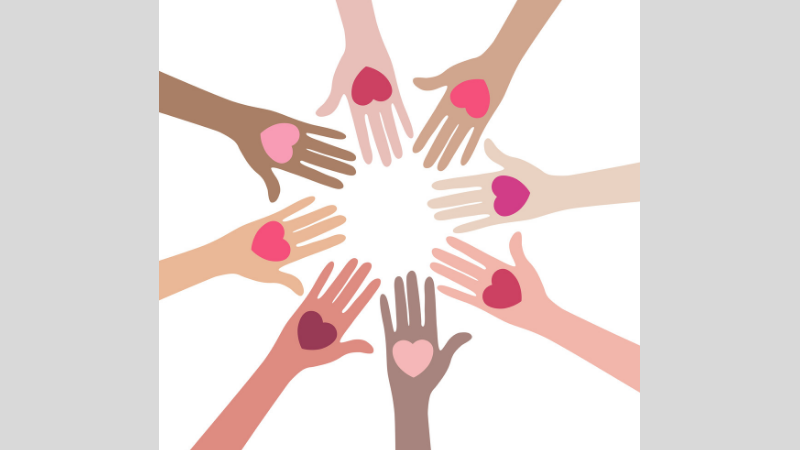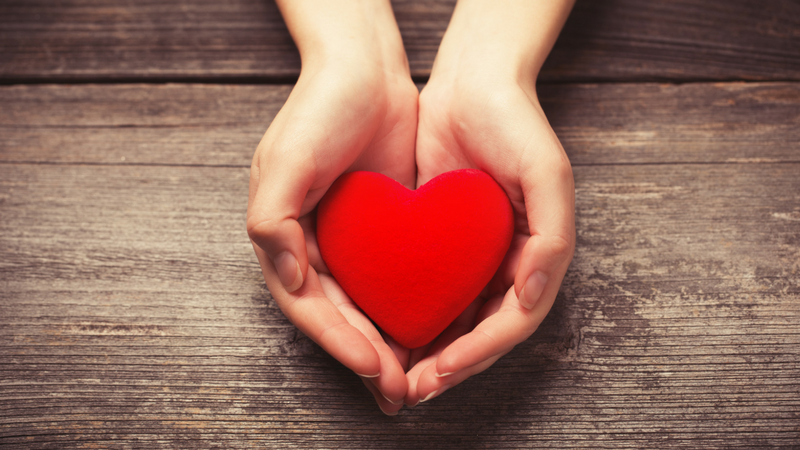Feel Alone in a Crowd? It’s Not Just You
“It’s Probably Just Me”
It’s Wednesday night, and we are all seated around a rectangular table. Eye contact is non-existent. Some of the women look haggard, with circles under their eyes and barely-brushed hair. Others look like they just stepped out of an office: polished and with makeup on point, their high heels click tentatively into the room. They are tall and short, thin and thick, and they have this in common: they want to feel better, and don’t know how.
There’s some light conversation as names are briefly exchanged, and we open our books and dive into the topic for the night.
As we work our way through the material, it happens. “It’s probably just me,” Susan says, before continuing her thought.
“It’s probably just me” properly translates to a much more powerful phrase: “I’m the only one, and I’m all alone.”
This is the evil that hides in mental illness and increasingly in our society as a whole, courtesy of social media.
It is debilitating and self-stigmatizing. It stops us from reaching out to others for help. When I’m the only one who has these thoughts, no one wants to be my friend. When I struggle to be cheery, no one wants to be around me, or they will struggle, too (and it’s my fault). When I am able to put a good face on my illness, no one knows how I’m really feeling — and I don’t dare tell the truth, or they’ll leave me. Even in a crowd of friends, I am an island. I am alone.
“It’s probably just me” properly translates to a much more powerful phrase: “I’m the only one, and I’m all alone.”
No matter how I turn, I am left alone and lonely. Weird. Cast out. Ostracized, even if it’s just in my own mind.
The irony of “it’s probably just me” is that it never is. In fact, I finally made a rule in my support groups: We’ve banned this phrase and its cousin, “I’m sorry.” (“I’m sorry” shows up when someone shares something honest that they think will make someone else sad or that shows how much hurt they are genuinely in.)
A Few Quick Stats to Prove You Are Not Alone
One in four people experiences depression at some point in their life. Three in 100 people live with some form of bipolar disorder. One in six lives with anxiety. When we look at the real numbers, we know: It’s not just me. I’m not alone in this experience.
Social media doesn’t help with these feelings of isolation, either. So many of us put our best lives on platforms like Facebook, Instagram, and SnapChat that we lose perspective on the challenges most of us face in our day-to-day lives.
When we’re feeling stuck, frustrated, depressed or anxious, being told we need to “choose happiness” is unhelpful at best
Our societal impulse toward gratitude is further isolating. Friends running gratitude challenges, gratitude journals, #blessed, and self-help gurus telling us that putting our energy into others and recognizing what we are grateful for drive home the point that our misery is our fault.
Be more positive! Be grateful! You live in America! Do you know what others go through? Happiness is a choice!
Seriously? I don’t think I can eyeroll any harder.
When we’re feeling stuck, frustrated, depressed or anxious, being told we need to “choose happiness” is unhelpful at best, and at worst, it drives us deeper into our negative mental state.
Practical Tips to Help
Here are a few practical tips that help us break out of the isolation we feel. Some of these are harder than others, so be sensitive to where you are emotionally.
1) Take baby steps.
Loretta wanted to make a doctor appointment, but just felt overwhelmed by it. Instead, she broke it down into baby steps.
In the first step, she texted a friend for a recommendation.
On the next, she saved that name and phone number on her phone.
In the last step, she simply had to click the name to start the call.
Breaking down any task into small parts (even tiny parts!) will make it more manageable and help you actually get it done.
2) Find a support group.
If you live with a mental illness, some churches offer “Living Grace” studies (a group I run locally) and others that have “Celebrate Recovery” programs that also address mental health concerns. Most of these programs are not simple “just turn your worries over to God” approaches; they offer real, practical, evidence-based tips that will help you heal.
NAMI and other non-profit organizations also offer support groups. Mommy groups for new moms, mental illness support groups (non-faith based), grief groups…you would be surprised at the number of options that exist.
Finding people who share your experiences is incredibly empowering and helpful.
3) Accept every offer of help you get. People don’t offer assistance they don’t want to give (and if they do, that’s their own issue to deal with). Accepting and receiving help is as much a part of a relationship as giving and sharing are.
4) Join a small group of some sort.
This might be taking an art or photography class at a local community college. Or it could be a Bible study through your church, a knitting group that meets at a local yarn store, or some other activity. Whatever it is, get yourself into a position to be exposed to people who have a similar interest to yours — and where your illness or life challenges don’t have to be center stage to the relationship.
5) Join a Facebook group specific to your situation. (Yes! Technology helps here!)
I belong to three groups specific to bipolar disorder. I like them because they remind me that the symptoms I have are not unique to me, and it helps me remember that I have a “real” illness and am not “crazy.”
The irony of “it’s probably just me” is that it never is.
Moms of Teens groups, new mommy groups, grief groups all exist, too. Heck, there are even groups to help you handle weird or challenging 23 and Me DNA results!
5) Know who to call, and for what.
My stay-at-home-mom friends are people I can call on if I need an emergency pickup for my kid, or who can help me get to the doctor.
My next door neighbor is fantastic for when I just need a break at the end of a tough day.
My church friends are wonderful if I need meal-train help, or need a reminder that God loves me even when I can’t experience him.
My girlfriends from high-school are great for when I need a giggle.
My support-group friends remind me that I’m not alone in the fight. I can cry and rant and share my honest thoughts, and know I’m not alone.
My husband walks with me through it all. Sometimes he takes over laundry, housework, and paying the bills, even though those are “my” jobs in our division of home labor.
You Are Not Alone
Participating in our community and accept help from those around us is not easy, especially when “it’s probably just me” dominates our thoughts. The fears we have of bringing others down or being ostracized for being honest about how we truly feel are self-stigmatizing and cause us to pull back and isolate when we need our friends the most.
The more we break out of our isolation, the less alone we will feel. The more we learn to lean on our friends and support network as we traverse our journey to remission, the easier it is to stay resilient once the storm passes.
Here’s what I want you to know: It’s not just you. You are not alone. If no one else, I am in this fight with you. I am on your side.
Have you felt alone in a crowd? What are some things you do to help yourself in those situations?
Looking for daily inspiration and community? Join our warm and supportive Facebook group!









